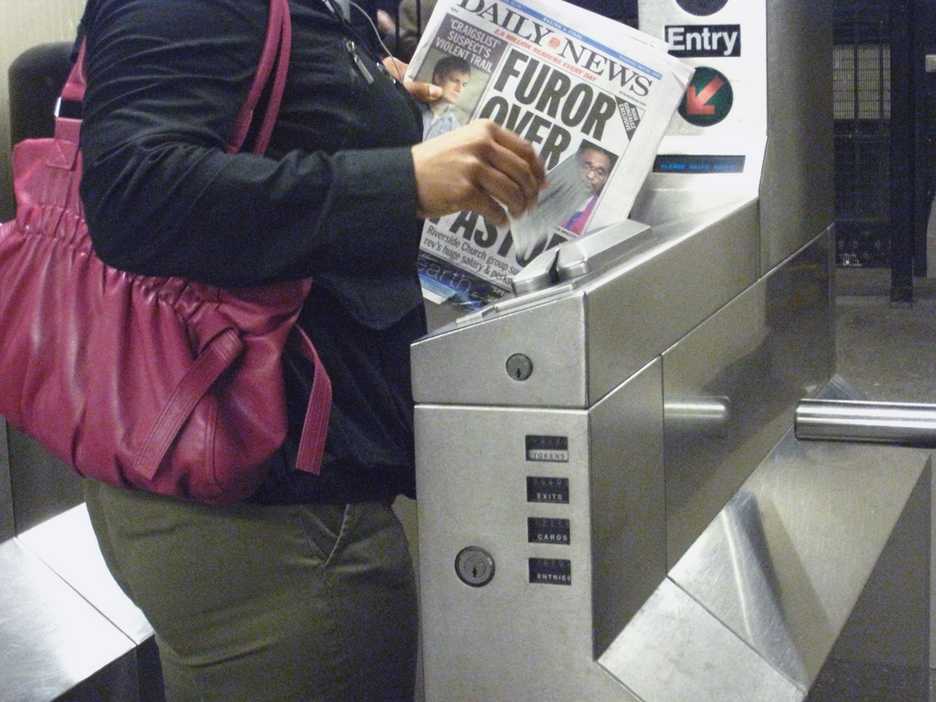The Fare Hike is a Fair Hike!
June 22, 2011

Published: April 30, 2009
You’ve heard the news: the Metropolitan Transportation Authority (MTA) is instituting a new fare increase that will raise the price of each subway ride by 50 cents. It is part of the depressingly named “doomsday budget,” a plan to cut service and raise fares to offset the transit authority’s enormous debt. Though at first, this may seem like highway robbery, especially to broke college students in the middle of an economic downturn, don’t join that “million strong” Facebook group just yet. While nobody wants a fare hike, if you look past all the blind outrage, you will find that it is completely warranted. With the Albany government muddled in incompetence, it’s not the MTA that should be blamed for this debacle.
In order to understand the rationale for the fare hike, one must examine the cause of the MTA’s debt. Being a naturally unprofitable agency that must be subsidized, the MTA has faced debt time and time again, but nobody seems to care. The economic downturn has caused major problems as real estate values plummeted and so, too, did the MTA’s revenue. The MTA’s financial situation is consistently ignored, while the debt continues to mount. As of April 2009, the MTA’s budget deficit had risen to $1.2 billion, and it may go even higher. Much of this debt has originated from the state and local governments’ lack of financing to the MTA’s capital projects—for example, the Second Avenue Subway line—in order to lower taxes. It’s clear that these projects are necessary, or else construction workers will be laid off, trains will be overcrowded to the breaking point and any hope of making progress on the city’s future transit system will be extinguished. Despite this, they have been continually sidelined by the state government. The MTA’s total debt has risen to more than $25 billion; ever since former governor Cuomo cut state contributions to the capital projects, the agency has been taking out loans. Other monetary troubles stem from the costs of labor, which have risen by 16 percent. These costs include healthcare and pensions for retired employees, as well as debt service payments, which have risen by 45 percent from 2003 to 2008, making it harder for the MTA to pay back the loans. While an immediate infusion of cash into the MTA seems like the best solution, the state government does not seem to agree.
The New York State Senate did not support a plan to “bail out” the MTA, which would have averted the need for a fare increase. With no money incoming from the government, the MTA can either raise fares and cut service, or ask its workers to drive trains and buses and perform maintenance for free. The Senate didn’t even support the Ravitch plan, drafted by former MTA chairman Richard Ravitch, which would have offset the MTA’s debt and reduced the hikes by 22 percent by introducing new tolls on bridges and an employer-paid payroll tax. Senate Democrats said that these tolls were unfair to drivers, while ignoring the even more unfair nature of forcing the poor to pay more for their subway rides. In truth, the tolls are perfectly justified, despite claims to the contrary—they will not hurt business, make the city less accessible, or increase traffic. The much-maligned Governor Paterson actually supports the bailout plan, but he approved the doomsday scenario after finding no other recourse. Senate Majority Leader Malcolm Smith tried to introduce his own plan, which failed due to faulty math, and he can’t get his majority to make a decision. Sadly, it doesn’t seem like the Senate is going to agree on anything before the fare hike and service cuts go into effect.
Another popular argument against the MTA is that it is corrupt and keeps “two sets of books.” This is a false claim made six years ago by Alan Hevesi, controversial former state comptroller and convicted fraud. In fact, you can examine the MTA’s 2009 “books” on its Web site, at http://mta.info/mta/budget/. With full budget transparency, it’s plain to see that the money is not being siphoned into some kind of secret fund for the top brass. The only ones at fault here are those who should be fully funding the MTA and are not. Instead of taking your anger out on the MTA, try telling your state senator to bail out the agency (http://senate.ny.gov/), and, hopefully, they will find a different plan before the hikes go into effect on May 31.








